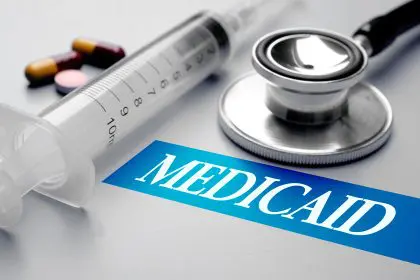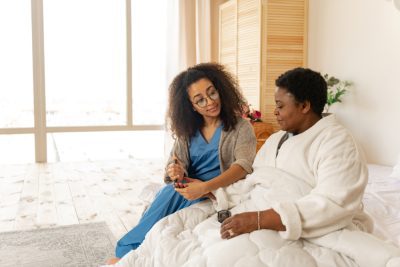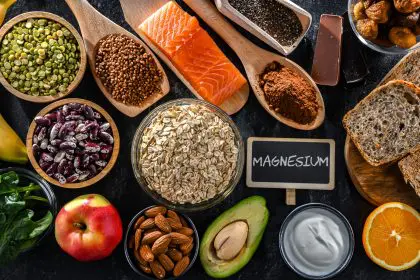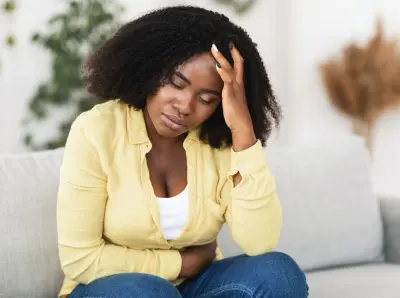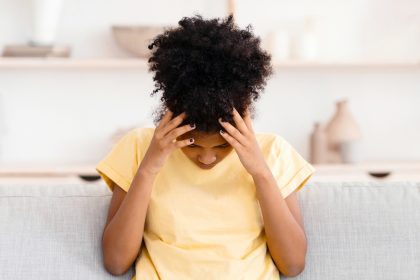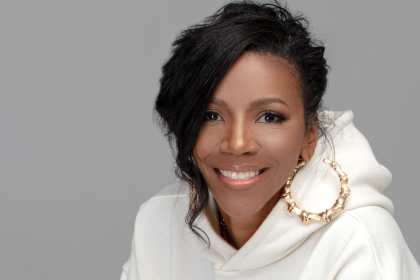In the bustling healthcare landscape of Atlanta, where disparities often define access to medical care, Terrence Hight Jr. has emerged as a transformative force. As the founder and CEO of Hight Health, he’s not just talking about change – he’s actively reshaping how underserved populations interact with the healthcare system. With over 12,000 lives impacted in Georgia alone, his approach to healthcare accessibility is proving that grassroots initiatives can create lasting systemic change.
[Editor’s note: This is a truncated transcription of a longer video interview. Please see the video for the extended version. Some errors may occur.]
Can you explain more about your background, Hight Health, and what are some of the initiatives that Hight Health is working on right now?
Absolutely, cool. My background starts in the hospital. So, I started on Ground Zero in the emergency room and outpatient and patient registration, so I was the guy that would come in and get your insurance card and all that. But then I mean, eventually, led me to a position in referral coordination where I was able to send people from primary care doctors from regular wellness visits to specialists. And in that, I saw a bunch of issues, a bunch of gaps, and realized that people are not getting connected to healthcare.
So fast forward from then until now, what we have with Hight Health is basically the third version of a problem we’re trying to solve, which is how do we get people connected to care, in particular, the most vulnerable populations, which we coined the term, or the society has it, underserved population with oftentimes minority people. That’s our overall goal, finding people who are not even coming to the doctor, going to the doctor, going to the hospital at all, except for when they go to the emergency room for some type of illness.
And how do we get them and then get them into a preventive care model where they were to prevent these things from happening and get connected to resources? About what Hight Health does is we do that very effectively through in-person events, through virtual health events, and through health and wellness programs that we offer. We bring them into the community that are completely free of charge. And again, we build access, education, and awareness—the three things we do.
Can you explain more about what the Atlanta Hypertension Initiative is? And what are some of the goals of the initiative, and what would you like the community to understand about it?
Yeah, absolutely. So that was actually a grant, mini grant that we run through Archie. We ran that back last year. So, a lot of effort put in for a great cause. And through that mini grant, we proposed a program with a 90-day blood pressure self-management program that involves weekly check-ins with a coach. You get a free blood pressure monitor. You get things like scales, and you get hypertension and high blood pressure information and resources.
And the overall goal is to help you decrease your hypertension readings. But also, if you can lose weight, that’s great. If you can change your lifestyle and put in different lifestyle habits that can modify your lifestyle, that’s great. So that’s what the overall goal of that program is. We run it in Fulton County.
What are some of the barriers to access that you notice when African Americans are seeking treatment for hypertension and/or heart disease?
Yeah, you can make a whole list of them. Tthe top three, I would say, number one is cost. A lot of people don’t go to the doctor because of the cost and knowing that you’re going to end up with a bill afterward. So that prevents people from bridging that access gap, as we call it. The second one would be transportation. One, do you have adequate transportation? Number two, is there even a provider, a healthcare provider, to help you manage your blood pressure in your area?
Can you get the transportation there? And then the last I would say would be health literacy. So, the people understanding that hypertension, high blood pressure, is a silent killer. You may have no symptoms, and you may feel absolutely fine, but your body is not going to respond until usually it’s too late or something major has to happen. So, by understanding those three factors, that’s what’s helped us make the program more effective for the community.
What are some ways patients can advocate for themselves to ensure they receive care that’s appropriate but also culturally relevant?
Right. No, that’s a great question. Yeah, I think one is just having a conversation. Don’t be afraid to have a conversation with your physician. Physicians out here doing great jobs, trying to help people, improve their health and trying to prevent you from being sick. So, I think just having a conversation with your physician and seeing, are there natural ways or lifestyle changes that I can put in place?
Should I be exercising more and being on the DASH diet to help me lower my high blood pressure? Require medication. Also, don’t be afraid to get a second opinion. If you have that option, try a different type of physician. So, I think by doing your research and really going in prepared and letting your physician know that, hey, I’m here to really improve my health and I care about my health. I think the physician will be willing to help you improve your health and give you different options.
What is the DASH diet?
So, the DASH diet, and forgive me, I can’t remember the acronym, but it’s for reducing hypertension. So, it helps you look at your salt intake. How do you take salt out? Because I think just culturally, again, we come from this background of slavery, right? You have to look at the influence that they had on some of the traditions and some of the norms of the food that we eat today because it was only things that slaves only had access to. So now you fast forward to where we are today, and those things are embedded in our cultures.
We may eat something that has a lot of sodium in it. We don’t realize that we’re messing up our hypertension level. So just something like that goes a little bit deeper. And we just have to really look at it.
What are some of the special considerations or challenges that African Americans face when it comes to blood pressure medication?
I think it’s a combination of things. That’s one of the biggest conversations we have. We meet people all the time and say, I know I have hypertension, but I’m not taking my medicine. And now I’m cringing inside, please, just leave you that one step of taking your medicine or having a conversation. And when you ask more why you’re not taking it, well, it makes me use the bathroom more, right? Sometimes you be on a diet, what’s called a diuretic, you’re using the bathroom a lot more, a lot more water being such a system.
So those types of things. Other people say, oh, I just forgot about it and I feel fine. And just because you feel fine doesn’t mean this is that. Let me check the blood pressure at the time, we’re like, OK, you need to go to the rest room or check with your doctor immediately. And then last, I guess, just the stigma of, “hey, my granddaddy had it or my mom had it, and we just kind of accept it”. But it doesn’t have to be that way.
And that’s what we’re trying to push out there, especially through the health literacy piece is that prevention is better than cure. We can prevent it from happening. We don’t ever have to talk about it. I mean, so we don’t, we don’t ever have to provide a cure for it. So, I said prevention is better than curing it. So, if we can prevent it early on, then we can not have to worry about the cost to ourselves, the cost to our loved ones, something happened with it self-wired in the long term.
What medications would you suggest or think based on consumption from your volunteers and participants in your programs?
Right. Well, I would say, because I’m not clinical, so I did put that out here, so I can’t go in depth with that. But in terms of what I hear from people, it’s just different multivitamins. A lot of people are going more towards a wholeness, a wellness type of medications or mixtures. You, of course, have to be careful about that because of the regulations of what you’re taking, but definitely those things.
When it comes to specific medication, though, it’s a matter of you just going to the doctor and having that conversation, and they’ll see if they need to put you on, it’s called a beta blocker or one of those types of medications. But it would be pretty much up to you and your physician as to what medication. And also, too, I would say, involve the pharmacists in the conversation. I think a superhero would oftentimes left out of the conversation, pharmacist.
How much does mental health influence heart health? And what are some of the best ways to address both at the same time?
Yeah, it is a huge, huge barrier. There’s a lot of studies out there talking about how anxiety, diet, and depression can increase the risk of heart disease now. There are different racial barriers that certain populations, these Black people face, that increase stress. I mean, studies out there, day in and day out, studies being put out about those risks and how that influences overall heart health. So, making sure that we are, I always say, you’re being mindful, diet, exercising and being mindful. It’s like mindfulness meditation.
And just having a long time, unplugging yourself really is the answer to that from a mental health perspective. And just kind of having that piece, if you will, because you may not realize that the stress contributes to it too. There’s a lot of stress factors. You worry about bills, you worry about kids, you worry about your job or what have you. So, there’s a lot of different factors related to mental health. And we should remove that stigma of mental health and realize that there are mental health resources out here that are available.
What are three strategies that can help African Americans manage this chronic stress that contributes to hypertension?
Yeah, one, and this is what I personally did, when I was taking from the mind of this meditation piece, which is going to YouTube, a lot of you have smartphones, not everybody, but some people do. I mean, even if you don’t have access to your local library, but go out there and find some meditation videos, find breathing exercises, even things that don’t necessarily cost you anything. You buy yourself, you have time alone, you can meditate or you can do breathing exercises.
But just those types of things throughout the day, helping you stay grounded, helping your blood pressure stay down, kind of keeping you in that peaceful state. I think those help. If you want to take it a step further, the website, findhealthga.org. So, Find Health has a ton of different resources on this, if you need to speak with somebody, or if you just look for other types of resources, I think you could go to a website like that and get the help you need. So those are definitely two options I would consider.
How can we adapt traditional African American diets for better heart health?
Right. So that’s a great question. That’s a big challenge. Big time, especially being here in the South, I think by just being open to modification of diet and realizing the long-term benefit that, okay, probably modifying my diet now, that’s going to, potentially could save me for having a heart attack in the future. Just those types of things, I think really would, would make major shifts, maybe that Kool-Aid doesn’t need two cups of sugar, maybe it needs a half a cup of sugar.
Maybe you need to use a natural sweetener versus using granulated sugar. So, those types of things that you can look at. There may be certain adjustments. You’ve seen people also recommend with vegan and vegetarian diets, or what’s the vegan option? So, versus using one thing, could you use cauliflower?
So that’s to keep something for that. So, these are small changes. I really think those are the types of changes that could help with diet modification. But to take it just one step further, if I can, there are a lot of populations and the ones that we serve most of the time who don’t even have access to these fresh vegetables. And then let alone, not worried about how can I make something fancy or no, I’m so you’re just trying to eat today. So those are the real problems.
So that’s why I think, it’s on us and we’re in communities from an individual level, or for a business or organization level to really look at these problems and say, okay, what are these different factors in communities that are blocking people that are barriots to people actually getting healthy and living their healthiest life.
Is there a website people can go to learn more about Hight Health and the Atlanta Hypertension Initiative?
Yeah, absolutely. So, everything can be found on our website. It’s www.hight.health, we kept it simple. You can also just put in Hight.Health in your URL browser, and it’ll pop up. So definitely go in there and look into the events we have. We did over 40 events in 2024, and we’re going to, more than double that in 2025. So, we always post an event on our social media pages on our website.
You can go to our website. As far as the Atlanta Hypertension Initiative, we are at the last wave. So, you can sign up within the next week or two, then you can still be involved in it. And now I’m going to have a cap. We do have another Hypertension-related program, the Healthy Heart Ambassador Blood Pressure Self Monitor program that we have in Clayton County. And that’ll be starting in January, but there’s still a few stipulations in terms of which have to be connected to.
If you want information, you can reach out to us, and we should give you information on that one. There’ll also be some other health and wellness programs we work rolling out throughout the year. We can’t let people know about it yet. We have an event, January 16th, which is the third Thursday in January. We’re having our first mini health resource fair at the Hapeville Branch Library. That’s one of our flagship events that we have.
It’s also in partnership with the Hapeville Library and their diaper and period item giveaway for you over to the community. It’s going to be screenings there, health vendors, et cetera. So, this invites you to come out and stay locked in with us, and let’s just improve the health of Georgia.
Terrence Hight Jr. advancing healthcare for underserved communities
Terrence Hight Jr.’s work with Hight Health is not only transforming the way underserved communities access healthcare, but it is also setting the stage for a healthier, more equitable future. By tackling the root causes of health disparities—whether through innovative hypertension management programs, community outreach, or advocating for better access to care—Hight Health is proving that change is possible. With the Atlanta Hypertension Initiative and other groundbreaking projects, Hight Health continues to lead the charge in addressing the chronic health challenges faced by African Americans, all while emphasizing the importance of education, prevention, and accessible healthcare solutions. To stay informed about upcoming events and initiatives, visit www.hight.health and become part of the movement for better health in Georgia.

